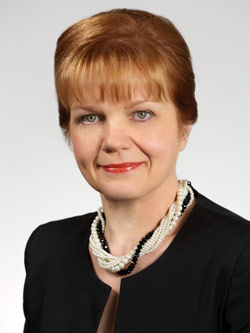The MT Conferences section does not involve the reporting or the editorial staff of The Moscow Times.

Anna McDonald
Partner, Co-Head of Russian Life Sciences Practice
Dentons
Following lengthy discussion and despite the criticism of experts, RF Government Decree No. 102 "On Restricting the Admission of Certain Types of Medical Devices Originating in Foreign States for the Purposes of Procurement for State and Municipal Needs" (hereinafter "Decree 102") was adopted on February 5, 2015. According to Decree 102, state procurement bids for the supply of medical devices of foreign origin (other than those manufactured in Belarus, Kazakhstan and Armenia) are to be rejected if at least two bids meeting the requirements for supply of such devices whose country of origin is Russia, Belarus, Kazakhstan or Armenia have been submitted.
Decree 102 contains a list of certain types of medical devices originating in foreign states for which such an admission restriction was established for state procurement (hereinafter the "List"). Considering the expendables included on the List, it was unclear if the restrictions imposed by Decree 102 on medical devices on the List were also applicable to expendables that are manufactured separately and are released onto the market apart from those medical devices, however, due to their functional purpose cannot be used by consumers on their own, but only in the course of using the respective medical device. Neither Decree 102 nor the competent governmental authorities have answered this question, and it remained for all market participants only to guess how Decree 102 will be interpreted in practice with regard to such expendables tied to particular medical devices on the List.
It seemed that the draft amendments to Decree 102 prepared by the RF Ministry of Industry and Trade that were published on August 3, 2015 and proposed for 15-day public discussion (the "Draft Amendments") should have clarified the rules of the game for market participants on this subject. However, the Draft Amendments do not contain any general principles for regulating expendables that are not included on the List for medical devices that are included on the List and merely propose to considerably expand the List with specific categories of medical items. In particular, apart from new medical devices such as crutches, prosthetic devices, walkers, canes, orthopedic footwear and protective clothing it is proposed to include on the List numerous items of medical equipment such as X-ray machines, ultrasound machines, defibrillators, a number of instruments used in dentistry, and many other devices and equipment. What stands out is the fact that the only new disposable that is proposed for addition to the List is blood glucose test strips (glucose meters were included on the List earlier). As in respect of expendables which are already on the List, it remains unclear how the restrictions will be applied to glucose test strips that are intended for use only in glucose meters of certain manufacturers purchased through state procurement tenders prior to the entry into force of Decree 102 and whose shelf life is far from expiring. In particular, at the moment the Russian Ministry of Health is in the process of replacing imported glucose meters with domestic ones, but it recognizes the need for state procurement of imported test strips for imported glucose meters that are in use and that should only be purchased from the manufacturer of the glucose meter with which those strips will be used.
The amendments also propose to make a number of procedural changes. For example, it is clarified that for the purposes of procuring certain types of medical devices included on the List, medical devices that are included on the List cannot be in the same lot with those that are not included.
Considering that the draft amendments to the Decree will have to go through the stages of public discussion, expert review, etc., before being adopted, one can only hope that amendments will be made to it making it possible to clarify the issues of how to apply it, including the issues described above. However, the basic gist of the amendments, if they are adopted, will remain unchanged: the restriction on import of medical devices for state and local needs will be considerably expanded.
We will continue to follow the passage of the Draft Amendments to Decree 102 through all stages of the legislative process and will inform you of what happens to them.
At the moment the draft amendments to the Decree are being further revised to ensure their compliance with the requirements of the RF Government Decree dated July 17, 2015 "On Criteria For Classification of Industrial Products As Having No Analogues Manufactured in the Russian Federation".
The MT Conferences section does not involve the reporting or the editorial staff of The Moscow Times.
A Message from The Moscow Times:
Dear readers,
We are facing unprecedented challenges. Russia's Prosecutor General's Office has designated The Moscow Times as an "undesirable" organization, criminalizing our work and putting our staff at risk of prosecution. This follows our earlier unjust labeling as a "foreign agent."
These actions are direct attempts to silence independent journalism in Russia. The authorities claim our work "discredits the decisions of the Russian leadership." We see things differently: we strive to provide accurate, unbiased reporting on Russia.
We, the journalists of The Moscow Times, refuse to be silenced. But to continue our work, we need your help.
Your support, no matter how small, makes a world of difference. If you can, please support us monthly starting from just $2. It's quick to set up, and every contribution makes a significant impact.
By supporting The Moscow Times, you're defending open, independent journalism in the face of repression. Thank you for standing with us.
Remind me later.





